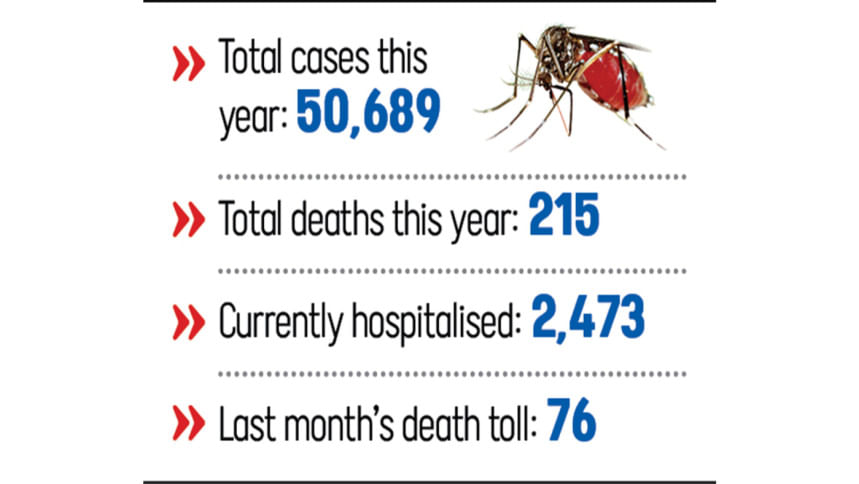
News
October 07, 2025
Dengue cases cross 50,000 mark
With 782 new dengue cases reported yesterday, the total number of cases this year has surpassed 50,000, marking an alarming trend, according to official data.
Dengue fever continues its relentless spread, with the total number of cases this year exceeding 50,000, according to the latest official data released today. Yesterday alone saw a staggering 782 new infections reported, pushing the overall figure past this worrying milestone. This surge in cases paints a concerning picture for public health officials and raises serious questions about the effectiveness of current preventative measures.
The rapid rise in dengue cases has prompted renewed calls for increased vigilance and community participation in combating the mosquito-borne disease. Health authorities are urging residents to take proactive steps to eliminate mosquito breeding grounds around their homes and workplaces. This includes regularly emptying containers that can hold stagnant water, such as flower pots, tires, and discarded receptacles.
Dengue fever, transmitted by the Aedes mosquito, causes flu-like symptoms including high fever, severe headache, muscle and joint pain, and a characteristic skin rash. In severe cases, dengue can lead to dengue hemorrhagic fever, a life-threatening condition characterized by bleeding, organ damage, and potentially death.
The current outbreak is placing a significant strain on healthcare resources, with hospitals and clinics reporting increased patient admissions. Medical professionals are working tirelessly to provide timely diagnosis and treatment to those affected. Public health campaigns are being intensified to educate the public about dengue prevention, early detection, and the importance of seeking medical attention promptly if symptoms develop.
While the specific factors driving this year's surge are still under investigation, experts point to a combination of factors, including favorable weather conditions for mosquito breeding, increased population density in urban areas, and potential gaps in public awareness campaigns. The authorities are currently reviewing existing strategies and exploring new approaches to effectively control the mosquito population and curb the spread of dengue fever. Residents are urged to cooperate fully with public health initiatives and to remain vigilant in protecting themselves and their communities from this growing threat.
The rapid rise in dengue cases has prompted renewed calls for increased vigilance and community participation in combating the mosquito-borne disease. Health authorities are urging residents to take proactive steps to eliminate mosquito breeding grounds around their homes and workplaces. This includes regularly emptying containers that can hold stagnant water, such as flower pots, tires, and discarded receptacles.
Dengue fever, transmitted by the Aedes mosquito, causes flu-like symptoms including high fever, severe headache, muscle and joint pain, and a characteristic skin rash. In severe cases, dengue can lead to dengue hemorrhagic fever, a life-threatening condition characterized by bleeding, organ damage, and potentially death.
The current outbreak is placing a significant strain on healthcare resources, with hospitals and clinics reporting increased patient admissions. Medical professionals are working tirelessly to provide timely diagnosis and treatment to those affected. Public health campaigns are being intensified to educate the public about dengue prevention, early detection, and the importance of seeking medical attention promptly if symptoms develop.
While the specific factors driving this year's surge are still under investigation, experts point to a combination of factors, including favorable weather conditions for mosquito breeding, increased population density in urban areas, and potential gaps in public awareness campaigns. The authorities are currently reviewing existing strategies and exploring new approaches to effectively control the mosquito population and curb the spread of dengue fever. Residents are urged to cooperate fully with public health initiatives and to remain vigilant in protecting themselves and their communities from this growing threat.
Category:
Politics